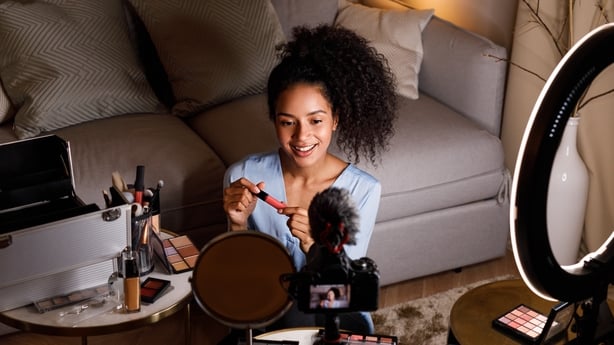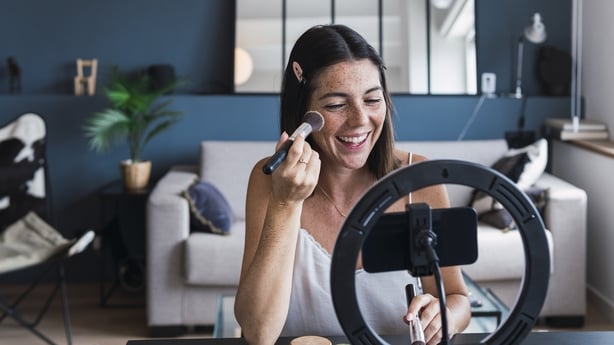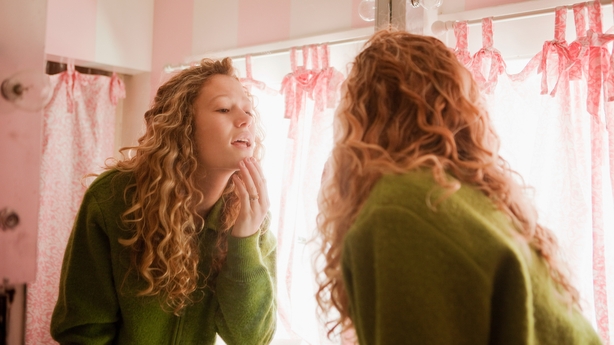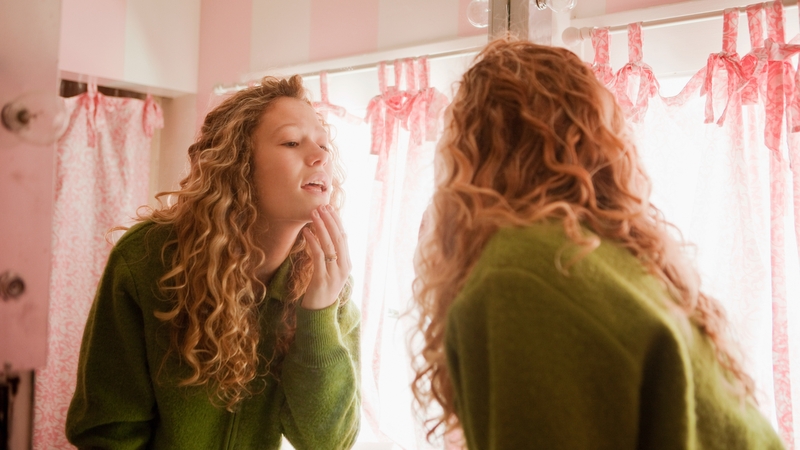Don't bend your neck. Don’t smile. Don’t eat salt. Don’t drink when you’re thirsty. Don’t eat cooked food. Train your face muscles to be limp at all times. Don’t allow gravity to engage with your body in any way.
The beauty industry is traversing a new frontier in the anti-aging landscape, and a younger audience than ever is taking note. The above are all examples of genuine anti-aging advice delivered via social media app TikTok.
While you’re busy training your face not to use its forehead muscles and willing the eternal march of time to slow down for just a second, the Global Anti Aging Market is being valued at USD 63.01 Billion for the year 2022 and is projected to reach a value of USD 106.65 Billion by 2030, according to Vantage Market Research.
There is a popular narrative on TikTok that ageing is one of the biggest beauty crimes you can commit. Millennials are the first generation to grow older on social media, and Gen Z will be the first to have had their entire lives documented online, with girls as young as 14 years old now sharing their beauty routines to "slow down the ageing process," while others have been documenting the process of training their face muscles to avoid the normal creases that facial expressions cause.

I am 29 and a half years old, and unlike other years, that "half" somehow seems extremely important as I approach the unknowns of a new decade. I’m the oldest I've ever been and yet I've regressed to childishly clutching for those "and a quarters" and "and a halves" in a bid to remind myself that I still have time before the clock runs out on my 20s.
I might even go fully infantile and start saying I’m 354 months old. The fact that the pandemic began, literally, on my 27th birthday also probably contributes to feeling like me and my 20s have some unfinished business. In reality, 30 and far, far beyond it is young, but we are primed by decades of grooming from the beauty industry to acquire a chorus of stereotypical hang ups about it that are designed to trigger an investment in anti-ageing innovations.
I only began to consider the encroaching perils and joys of 30 in the last 12 months or so, (partially when I realised that the majority of the up and coming stars are now a decade younger than me) while over on TikTok, girls literally half my age are already attempting to dodge the inevitable embrace of senescence.

One 14-year-old went viral on the app for her intense routine which included taping paper to the car windows on long journeys to avoid the effect of UV rays.
When I was an early teen, my skincare regimen extended to a swipe with a scented makeup wipe, a wash of bead filled exfoliator and the occasional supermarket bought face mask, applied at sleepovers and documented in digital camera snapshots of our vividly painted faces. However, TikTok is a treasure trove of high tech inventions claiming to solidify your grasp on youth.
One of the most well documented inventions that led to a combination of interest and ridicule is the anti-ageing straw. In an attempt to offset any future lip creases, some anti-ageing influencers on the app suggest using the "anti-wrinkle" straws which allow you to drink without pursing your lips. This motion is what can lead smokers to develop what’s commonly known as smoker’s lines around their mouth. Of course, you could just drink directly from the cup or glass, but TikTok loves a slightly kooky beauty contraption and so, virality ensued.

The internet is currently captivated by TikTok’a ageing filter. The filer deepens wrinkles and adds facial sagging, with celebrities such as Kylie Jenner declaring "I don't like it. I don't like it at all."
Countless creators have reacted to the filter, claiming to be upping the ante on their skincare regimens as a reaction to seeing what they could look like in the decades to come. Others reacted with upset, confronting the existential fears that can come when considering the unavoidable process of ageing.
The filter exposed many people's prejudices against the appearance of ageing, but is also causing people to question their negative preconceptions against it.
Amid this landscape of filters and trending anti-ageing products on an app that has a reputation for being the domain of teenagers, it is no surprise that a new generation is being influenced to take how they will age into consideration.
We need your consent to load this tiktok contentWe use tiktok to manage extra content that can set cookies on your device and collect data about your activity. Please review their details and accept them to load the content.Manage Preferences
In addition to this, young people are now exposed to an infinite amount of images of supposedly flawless (and Facetuned) bodies and faces via social media. While we have always had celebrities and actors in our periphery, on magazine pages and the big screen, now the opportunity to compare is borderline surgically attached to the hands of most teenagers via their phones.
Celia Holman Lee, who has always championed embracing beauty at all ages, has been an intrinsic part of the fashion and beauty industry for decades since she first began her career as a model at the age of 15, explains that social media is amplifying the pressure people can feel to look their best.
"There is a little bit more pressure now, and you can see the effect that people like the Kardashians have had," she said. "You can see that because the access is so easy, all they have to do is pick up the phone and go on. Everything goes through its decades and phases, and right now it's so overloaded, there is so much going on on social media, every few weeks there is a new trend."
We need your consent to load this Instagram contentWe use Instagram to manage extra content that can set cookies on your device and collect data about your activity. Please review their details and accept them to load the content.Manage Preferences
She notes that trends come and go, from the double stacked eyelashes of the 1960s to the current infatuation with skincare, and that there is little that can be done to prevent people of any age from wanting to participate.
"When it comes to young people, there has always been someone to follow, and even my mother who was 83 when she passed away, she never stopped talking about Lana Turner and Liz Taylor and would pin curl her hair, so that goes on and will continue to go on. And social media has that too, and there is so much going on there, it’s so crowded."
However, there is an 'anti-anti aging’ pushback happening on TikTok. The term pro ageing was already taken by a well established movement that champions a holistic and positive approach to getting older. It-girl and TikTok aficionado Julia Fox has declared that ageing is "f**king hot," and has appeared on the red carpet with the roots of her hair painted artificially grey in a "love letter to getting older," she said as per a clip posted by The Cut. "We’re embracing getting older."
We need your consent to load this Instagram contentWe use Instagram to manage extra content that can set cookies on your device and collect data about your activity. Please review their details and accept them to load the content.Manage Preferences
Online, creators are dueting the anti-ageing videos that train young people to learn how to avoid using their facial muscles to prevent wrinkling with response videos contorting their faces into intense grimaces and intentionally creasing their skin in exasperation.
It’s difficult to accept and lean into the ageing process when such a massive premium is placed on youth, but no matter what we do to try to prevent it, the years will allow our bodies to tell the story of their lived experiences more emphatically.
While a touch of Retinol here and a slathering of night cream there is perfectly acceptable in any beauty regimen, it is far better to embrace the forthcoming result of the smiles we are having now than avoid the smiles all together.
The views expressed here are those of the author and do not represent or reflect the views of RTÉ.

